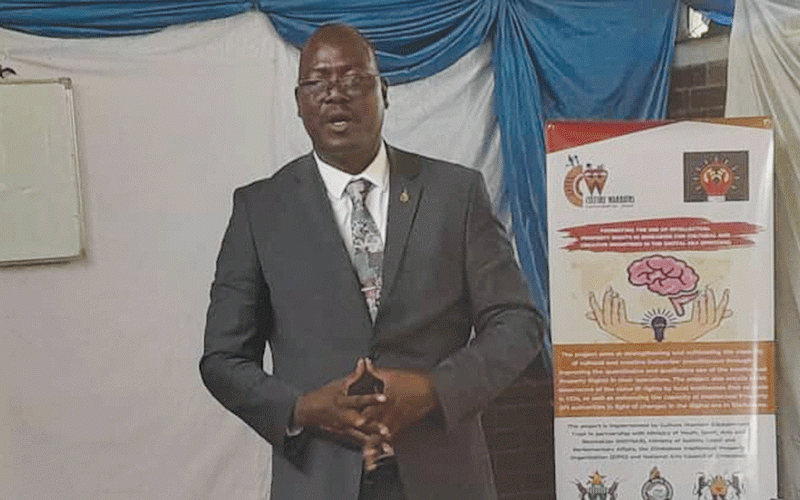
INTELLECTUAL Property Rights (IPRs) play a crucial role in fostering innovation and protecting creative works in today’s knowledge-based economy.
These rights enable individuals and organisations to be rewarded for their intellectual contributions, while providing a legal framework for safeguarding ideas, inventions and artistic expressions.
National Arts Council of Zimbabwe (NACZ) director Nicholas Moyo, however, said Zimbabwe still lagged in both knowledge and implementing instruments for effective exploitation of IP due to big knowledge gaps within the creative culture system (CCS) and government policy agents.
Moyo made the remarks last week at the Intellectual Property Rights in the Cultural and Creative Industries (CCI) workshop held in Harare’s Mufakose high-density suburb, courtesy of Culture Warriors Edutainment Trust.
The workshop, held under the theme Promoting the use of Intellectual Property Rights in Zimbabwe for Cultural and Creative Industries, was meant to address knowledge gaps in the sector.
The workshop also raised awareness on key issues related to IP, including the role of the IP system in creativity, registration processes and costs involved.
“Intellectual property rights are crucial for the development of the cultural and creative sector in Zimbabwe, as outlined in government policies such as the National Development Strategy 1, National Arts, Culture and Heritage Policy, National Cultural and Creative Industries Strategy and the Zimbabwe Music Strategy,” Moyo noted.
“The creative sector is based on individual creativity, skill and talent, with potential for wealth and job creation through the generation and exploitation of intellectual property. Zimbabwe needs to develop and fully utilise its intellectual property systems.”
- Business opinion: Branding through Intellectual Property Rights
- Business opinion: Branding through Intellectual Property Rights
- Film has potential of changing economy
- Creatives urged to plough back into communities
Keep Reading
He said NACZ supported the digitisation of the CCS, embracing information technology platforms for export opportunities and knowledge expansion.
Culture Warriors Edutainment Trust director Peter Mhimhu said through the workshop they aimed to strengthen and cultivate the cultural and creative industries by improving the quantitative and qualitative use of the IP systems by local artists in light of changes in the digital era.
“Artists, promoters and stakeholders must promote the role of intellectual property in the development of creative economic sectors for sustained socio-economic development,” he said.
“This must include educating and training other sectors of the economy on how to protect, manage, exploit, and enforce intellectual property rights within the cultural and creative industries.”








